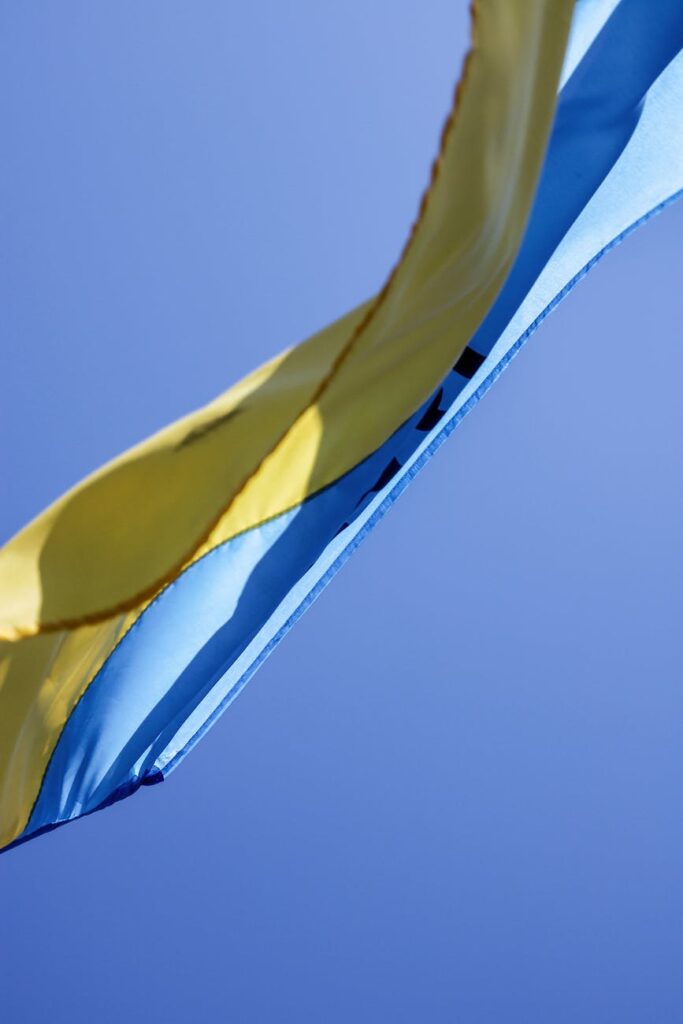
The Economist, 8/6/22
Eduard K. can’t recall the exact chain of events that led him to approach a Ukrainian military checkpoint and shout: “Putin is my president.” The fashion designer says he remembers an increasing state of panic as war raged outside his home in northern Kyiv. Even when shells weren’t exploding nearby, he would cry uncontrollably at the news he saw on his phone. He became obsessed by the Russians, the evil forces advancing on the other side of the forest. Perhaps he was searching for them when he left his home, in slippers and pyjamas, for the Ukrainian positions inside the woods. Instead, he remembers saying he was looking for Katya Chilly—a camp, new-age Ukrainian Eurovision entrant—before announcing his allegiance to Russia’s president. He was roughed up for his troubles.
That afternoon Eduard K. was admitted to one of Kyiv’s psychiatric hospitals. Yaroslav Zakharov, the doctor who saw him first, says his illness was far from unique in a country traumatised by five months of fighting. War has affected every Ukrainian in some way, and stress is magnifying problems present in the most vulnerable. In normal circumstances the psyche works like a digestive system, the doctor says; it is able to adapt and process extreme experiences. Prolonged war changes that. The expectation of suffering debilitates the nervous system. “People like to control things, and war doesn’t let you do it,” he says. Ukraine’s health ministry predicts that the war will leave 3m-4m people in need of pharmacological interventions, and another 15m requiring psychological support.
Dr Zakharov’s ward was a hive of activity when The Economist dropped by in late July. A soldier had just been admitted after an incident in which he turned firearms on a colleague on the frontline. The entire second floor of the building had been taken over by the military, the doctor revealed, with new admissions increasing in line with the hostilities in the contested Donbas region, in Ukraine’s east.
The most intense pressure on resources, however, came during the battle for Kyiv in March, when the hospital stayed open despite missiles flying over and landing near it. The doctors discharged all but the most dangerous patients, and spread their meagre resources as best they could. There were many tragic incidents. One of the discharged men, who had a history of mental illness, hanged himself after discovering that his home near Kyiv had been ransacked by Russian soldiers. His wife is now receiving treatment.
Eduard K. says that many of the patients admitted alongside him came directly from Bucha or Irpin, suburbs of Kyiv where occupying Russian forces committed terrible atrocities. The men were of all ages and backgrounds, he says, from the very young to the very old, and friendly. One group of patients got it into their heads that Eduard K. was God. “They introduced themselves one by one: this is Archangel Michael, and this so-and-so is Archangel Gabriel”, he recounts.
Some were too traumatised to speak, but brought Eduard offerings instead: apples, odd tea bags, coffee, socks. By the end of his first day on the ward his bedside table was overflowing with unsolicited gifts. One young patient would bring him one-kopeck coins. He had evidently witnessed Russian atrocities near his home in Bucha, though he was never able to communicate exactly what.
The Ukrainian government has sent mental-health specialists into some of the worst-hit towns. Nataliya Zaretska, a psychologist, has been working in Bucha for the past three months, helping civilians process the trauma of occupation. She expected her programme to end after six months, but the demand has been so high that she has opened a new mental-health centre in the town. Ms Zaretska says that the spectrum of mental illness is wide. She works with soldiers who have returned after being tortured in captivity, and locals who have been prisoners in their own homes.
The Alice-in-Wonderland nature of Vladimir Putin’s invasion—the bogus claims of Ukrainian Nazism, of “liberating” Russian-speaking Ukrainians, of “high-precision” missiles that end up killing civilians in shopping centres—makes recovery complicated for many people. There are few things as dangerous for mental health as the feeling of betrayal and illusion, says Olena Nahorna, a colleague of Ms Zaretska now embedded with Ukrainian troops in Donbas. Those who understood from the start that Russia was the enemy were better at coping with the horrors of the war, she argues. Those who thought they were friends found it tougher. “A lot of Ukrainians saw in Moscow a neighbour, albeit an eccentric one. It was a personal tragedy when that eccentric friend burst into their homes and started killing them.”
Ms Nahorna identifies one potential upside to war: the national unity forged by the shared experience of trauma. Eduard K., now discharged from Mr Zakharov’s care, says the extreme nature of his experience has given him new clarity in life. “I realise I could be dead, that different soldiers might have shot me, and that is a big kick up the backside.” His doctor agrees, but cautions it is too early to know the full extent of his trauma—and Ukraine’s. Mr Putin, he says, has dropped a delayed-action bomb on the psyche of every Ukrainian.
Barely holding back tears, the doctor reveals that his own rage pushed him to try to enlist. He was persuaded against it by a former patient now fighting in Donbas. “She told me I needed to take good care of myself, that I would be needed by all of them when the war is over.” She was right.